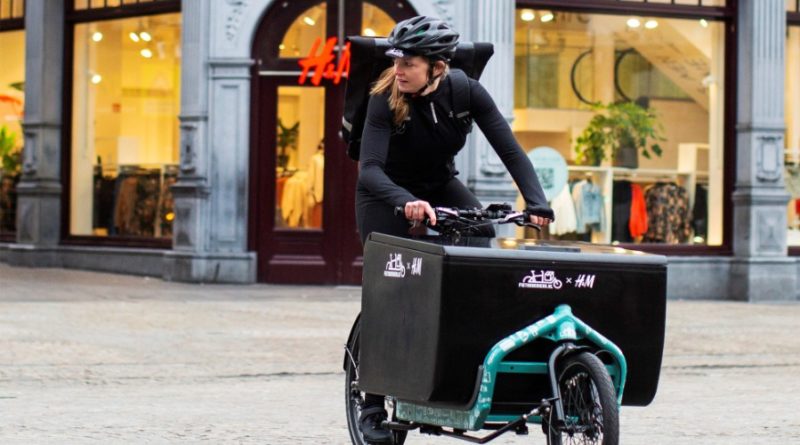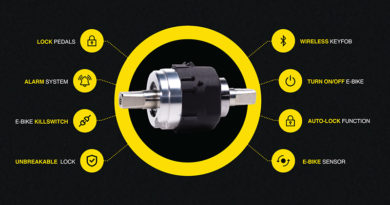Fashion retailer adopts bike deliveries for Netherlands customers in sustainability drive
European fashion retailer H&M has announced a collaboration with Dutch package delivery service Fietskoeriers.nl to offer bike deliveries to online customers in the Netherlands.
Covering around 30 cities in the country, Fietskoeriers.nl keeps CO2 emissions to a minimum by picking up parcels at H&M’s warehouse with biogas vehicles and then deliver the parcels by bikes from local hubs. The new service is a next-day delivery option and priced as regular next-day delivery.
Pascal Crun, Head of Sustainability at H&M, said: “We are happy to see an increasing interest for sustainability among our customers and hope they will love this new climate-smart way of getting their fashion fins delivered to their homes. We look forward to evaluating this pilot project and to reveal new exciting projects when it comes to climate-smart transports.”
H&M’s sustainability aim is to become climate positive by 2040. The company says it wants to use its ‘size and scale to drive positive change towards climate-smart solutions’ and are ‘so excited’ about the pilot scheme with Fietskoeriers.nl.
Other big-name brands and companies are also looking to cycling and mobility as a way of increasing their sustainability actions. In the summer, OVO Energy launched an initiative to encourage cycling and sustainability; a series of events working with technology and innovation focused companies to raise participation in cycling while achieving a zero-carbon footprint.
Meanwhile, Local retailer-backing app ShopAppy has teamed up with a cargo bike delivery service Bike Box Delivery to get product in the hands of consumers in a several locations around the UK. Additionally, a butcher in the borough of Greenwich cut its carbon dioxide (CO2) emissions by almost 75% last year by using an electric cargo bike for local deliveries, as part of a six-month trial, delivered by the walking and cycling charity Sustrans.
As recently as today, digital training and ride-logging platform Strava has been able to demonstrate the immense climate benefits of cycle commuting through its Metro platform; miles commuted by bike equated to a carbon offset of 28,270 metric tonnes against driven miles in the UK alone. A big opportunity for bike share schemes, workplaces, businesses and urban bike brands to capitalise on, then.



